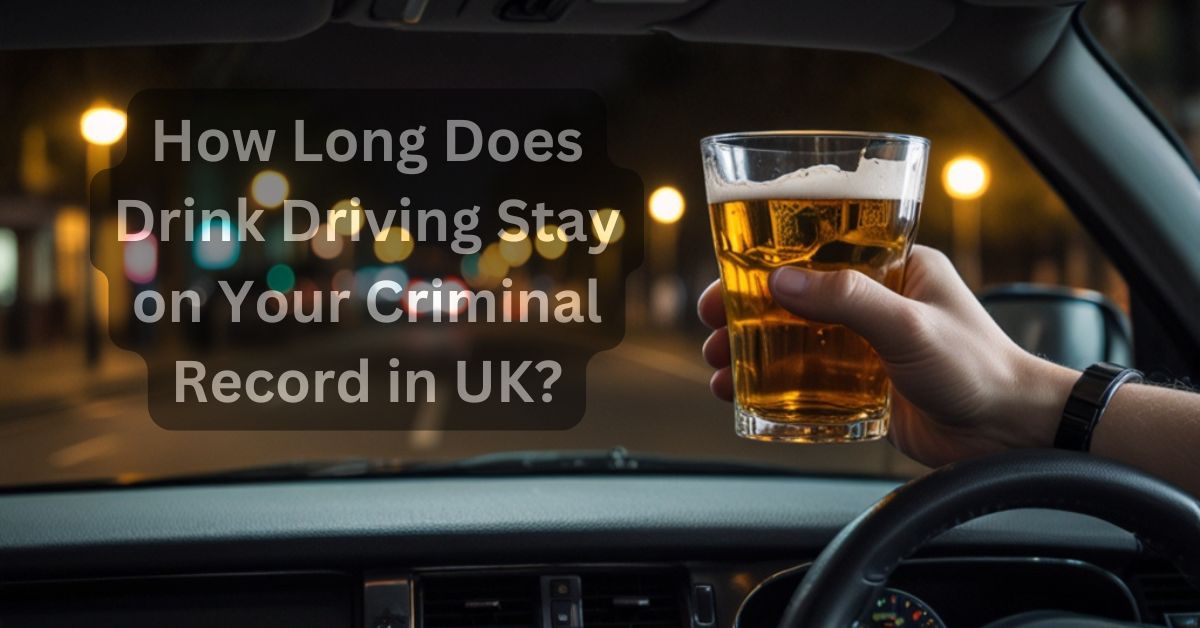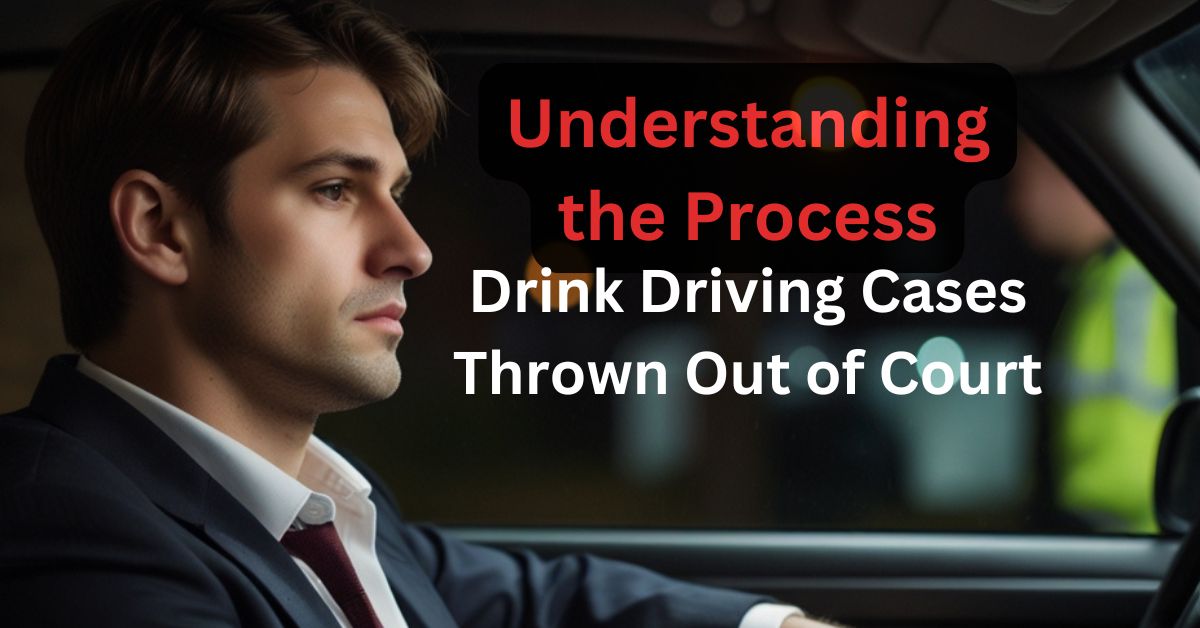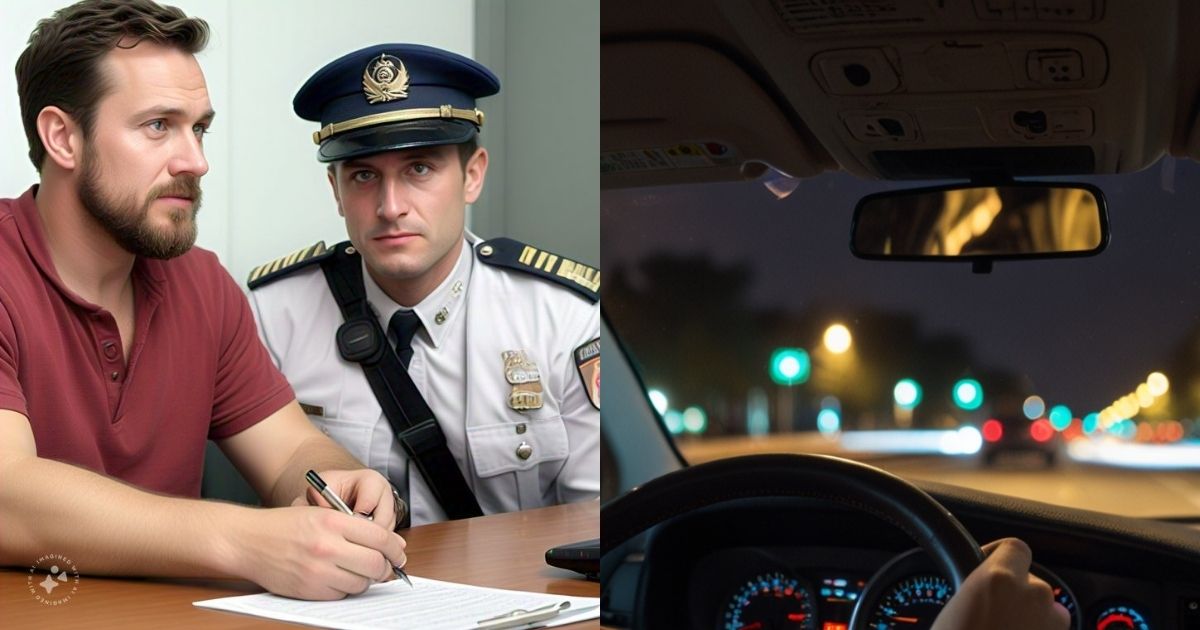In the UK, a drink driving conviction typically remains on your criminal record for 11 years from the date of the offence. This means it will be visible on your record for this period before it becomes ‘spent’ under the Rehabilitation of Offenders Act 1974.
Introduction to Drink Driving Offenses in the UK

Drink driving is a serious legal offense in the UK, defined as operating a vehicle with a blood alcohol concentration (BAC) over the legal limit. According to the Road Traffic Act 1988, the legal limit in England, Wales, and Northern Ireland is 35 micrograms of alcohol per 100 milliliters of breath, or 80 milligrams of alcohol per 100 milliliters of blood. In Scotland, the limit is lower at 22 micrograms of alcohol per 100 milliliters of breath, or 50 milligrams of alcohol per 100 milliliters of blood.
Also Read: How Does Drinking Alcohol Affect Your Driving Behaviour Theory Test?
The law imposes strict penalties for drink driving to deter individuals from engaging in this dangerous behavior. Understanding the duration and implications of these offenses on your record is crucial for anyone with a drink driving conviction.
Types of Drink Driving Offenses and Their Consequences

There are several types of drink driving offenses, each carrying different consequences:
- Driving or Attempting to Drive While Over the Legal Limit or Unfit Through Drink – This is the most common offense. Penalties include a minimum 12-month driving ban, an unlimited fine, and a potential six months in prison.
- Being in Charge of a Vehicle While Above the Legal Limit or Unfit Through Drink – This offense involves being in control of a vehicle (e.g., sitting in the driver’s seat) while over the limit. Penalties include up to three months in prison, a fine, and a possible driving ban.
- Refusing to Provide a Specimen for Analysis – If you refuse to give a breath, blood, or urine sample for analysis, you could face a driving ban of at least 12 months, an unlimited fine, and up to six months in prison.
- Causing Death by Careless Driving When Under the Influence of Drink – This severe offense carries a prison sentence of up to 14 years, an unlimited fine, and a driving ban of at least two years.
Beyond these immediate penalties, a drink driving conviction can impact employment opportunities, increase insurance premiums, and limit travel options, particularly to countries with strict entry requirements.
Also Read: How to Get Off a Drink Driving Charge
How Long Drink Driving Stays on Your Record in the UK
The duration a drink driving conviction remains on your record depends on the nature and severity of the offense. Typically, drink driving offenses stay on your driving record for 11 years from the date of conviction. This period is crucial for insurers and any legal checks related to driving licenses.

In terms of criminal record, the Rehabilitation of Offenders Act 1974 dictates when convictions become “spent.” A spent conviction no longer needs to be declared in most circumstances, such as applying for insurance or certain jobs. For a drink driving conviction, this typically happens after five years, provided there are no subsequent offenses.
Spent vs. Unspent Convictions
Understanding the distinction between spent and unspent convictions is vital for managing a drink driving record:
- Unspent Convictions are those that have not yet passed the rehabilitation period. They must be declared when required, such as in job applications or insurance forms.
Also Read: Drink Driving Cases Thrown Out of Court
- Spent Convictions are those whose rehabilitation period has elapsed, meaning they no longer need to be disclosed in most situations.
Drink driving offenses generally become spent after five years, assuming no further legal issues occur within this timeframe. However, certain jobs (e.g., those involving children or vulnerable adults) may require disclosure of spent convictions.
Disclosure Periods for Drink Driving Convictions

The disclosure periods for drink driving convictions can vary:
- Standard Drink Driving Offense – Typically spent after five years.
- Offenses with Aggravating Factors (e.g., high BAC or causing an accident) – May have extended periods before becoming spent due to increased severity.
Also Read: Can I Travel to the USA with a Drink Driving Conviction?
- Repeat Offenses – Multiple drink driving convictions can lead to longer disclosure periods, as each offense resets the rehabilitation period.
Employers can only ask about unspent convictions unless the role is exempt from the Rehabilitation of Offenders Act. Therefore, understanding your obligations in job applications is crucial.
How Drink Driving Affects Driving License and Insurance
A drink driving ban can last from 12 months to several years depending on the offense’s severity. This ban appears on your driving record for 11 years, affecting future license applications and renewals.
Insurance premiums are typically higher post-conviction. Offenders must declare their conviction when applying for car insurance, as failure to do so can invalidate policies. Typically, the impact on premiums lasts for up to five years, aligning with when the conviction becomes spent.
Special Circumstances and Legal Advice
Certain conditions might influence how long a drink driving conviction stays on your record:
- Appeals – Successfully appealing a conviction can result in its removal from your record.
- Legal Representation – Seeking advice from a legal professional can help manage your record, particularly if mitigating circumstances exist.
Also Read: Can You Get an ESTA with a Drink Driving Conviction?
- Support Resources – Organizations like the DVLA and legal aid providers offer guidance on dealing with drink driving convictions.
Conclusion
Understanding how long a drink driving conviction stays on your record and its implications is crucial for navigating the post-conviction landscape. Key points include:
- Drink driving offenses typically remain on your driving record for 11 years.
- Convictions become spent after five years, reducing the need for disclosure in most situations.
- High insurance premiums and employment challenges are common post-conviction issues.
Complying with legal requirements and actively working towards rehabilitation can help rebuild your life after a conviction. Engaging in safe driving programs and seeking professional legal advice are positive steps towards recovery. By understanding the nuances of drink driving records, you can better manage your circumstances and work towards a fresher start.
FAQs
1. Does your criminal record clear after 7 years in the UK?
No, a criminal record does not automatically clear after 7 years in the UK. For most offences, including drink driving, the conviction may stay on your record for 11 years. However, for other minor offences, it may become ‘spent’ after a shorter period.
2. Do I have to declare DR10 after 5 years?
A DR10 conviction (drink driving) becomes spent after 5 years for most purposes, meaning you may not need to declare it to certain employers or insurers. However, it will still appear on an enhanced DBS check and may affect some applications, such as for jobs in sensitive sectors.
3. How far back does a criminal background check go in the UK?
Standard and enhanced DBS (Disclosure and Barring Service) checks in the UK do not have a time limit; they can show convictions from your entire criminal record, including spent convictions if deemed relevant to the job.
4. How can you get a criminal record removed in the UK?
In the UK, you generally cannot have a criminal record removed unless it was given in error or overturned on appeal. After the conviction becomes ‘spent,’ it no longer needs to be disclosed in most situations. In some rare cases, individuals may apply for a ‘Record Suspension,’ but this is uncommon.
5. Can you hire a car with a drink driving conviction in the UK?
Yes, it is possible to hire a car with a drink driving conviction, but it can be more difficult. Some rental companies may have restrictions or increased insurance premiums for drivers with recent drink driving offences.
6. Will a drink driving offence affect a visa application?
Yes, a drink driving offence may affect your visa application, especially for countries like the USA, Canada, and Australia, where visa requirements are strict. You may need to disclose your conviction, and it could lead to a refusal depending on the circumstances.
7. Is drink driving a criminal offence in the UK?
Yes, drink driving is considered a criminal offence in the UK. It is a serious offence that can result in penalties such as fines, driving bans, and even imprisonment.
8. Can you join the police with a drink driving conviction in the UK?
It is unlikely that you would be accepted into the police force with a drink driving conviction. The police have strict vetting standards, and criminal convictions, especially those related to driving under the influence, may disqualify applicants.
9. Is it hard to get a job with a drink driving conviction?
A drink driving conviction can make it more difficult to secure a job, especially if the role requires a clean driving licence or involves driving. However, many employers may overlook the conviction once it is spent, depending on the role and industry.
10. Can I join the Army with a drink driving conviction?
It may be possible to join the Army with a drink driving conviction, but it could be a barrier, especially if the offence is recent. Each case is considered individually, and the nature of the conviction will be taken into account during the recruitment process.
11. How long does a criminal record last for drink driving?
A drink driving conviction remains on your criminal record for 11 years in the UK before it is considered spent under the Rehabilitation of Offenders Act 1974.
12. Do I have to tell my employer about a drink driving conviction?
You are generally required to disclose unspent convictions to your employer. If the drink driving conviction is spent (typically after 5 years), you may not need to disclose it, unless your role requires an enhanced DBS check or involves certain regulated activities.








